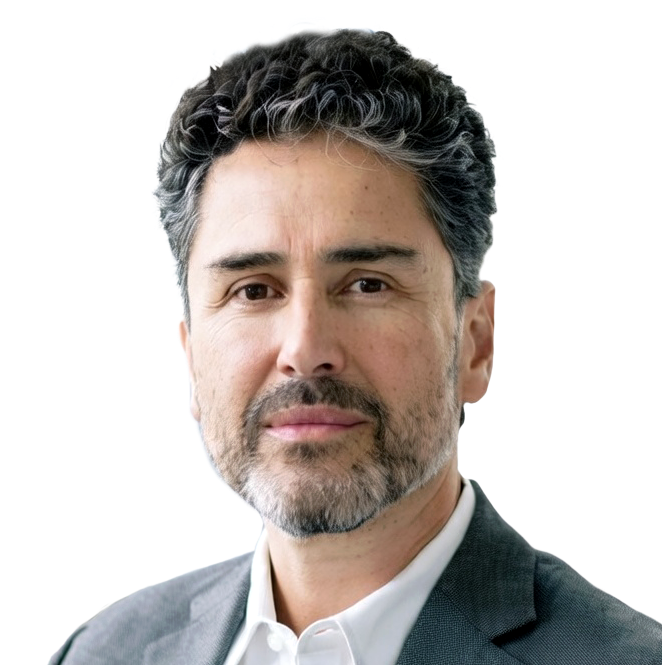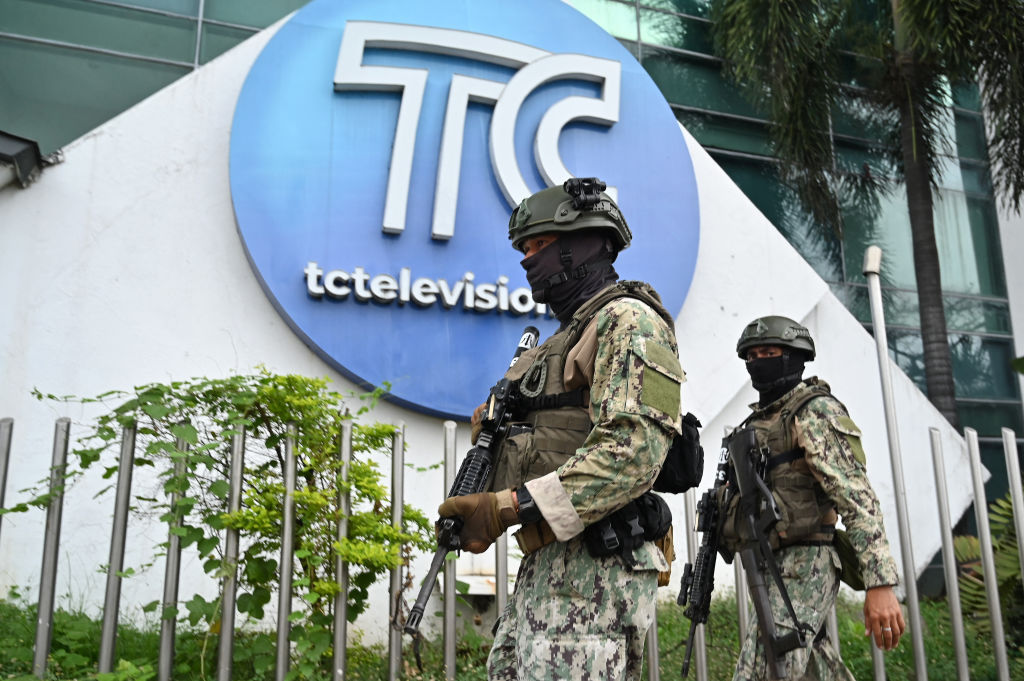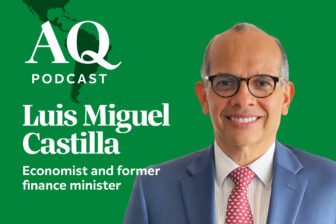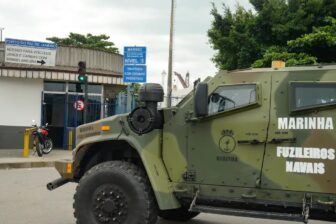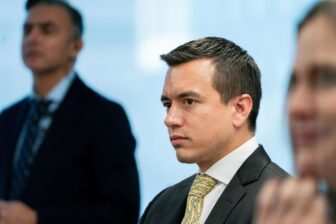QUITO—The images shocked the world: Gang members invading a TV station, police being kidnapped, university students stampeding to safety. Perhaps not since the days of Pablo Escobar has a Latin American country seen such an audacious assault on central symbols of power.
Now, President Daniel Noboa faces the difficult, but not impossible, task of restoring the rule of law. Noboa’s quick declaration of a state of “internal armed conflict” on Tuesday, designating gangs as terrorist groups, contrasted with more accommodating responses by previous governments. Ecuador’s military will see an infusion of resources, although they are going up against a formidable and cash-flush range of foes.
There has been some encouraging news. In an otherwise polarized country, a rare political consensus has emerged supporting Noboa’s tough stance. Endorsements have come from diverse political and civil society groups, including former President Rafael Correa and Indigenous leader Leonidas Iza. This consensus provides Noboa with a political opportunity for aggressive security and other reforms, including his plans to hold a referendum on the extradition and asset seizure of criminals.
But the problems did not start yesterday. Global production of cocaine has more than doubled in the past decade, according to United Nations data. Ecuador, particularly the port city of Guayaquil where much of Tuesday’s violence unfolded, has become a major transshipment point for cocaine produced in neighboring Colombia and Peru. Our country’s homicide rate has soared by almost 500% and it is now one of the most violent in Latin America. Last year’s presidential campaign was rocked by the assassination of a candidate who had publicly challenged the ever-more powerful cartels.
The ease with which high-profile criminals recently escaped from prison highlights deep criminal infiltration in state institutions, particularly in prisons that function as de facto criminal headquarters. These developments have instigated an unparalleled atmosphere of fear, severely disrupting businesses and daily life, and even compelling many multinational companies to relocate their foreign employees.
Noboa, a 36-year-old center-right leader who only took office in November, faces a limited political window to take action. He may attempt to follow some aspects of El Salvadoran President Nayib Bukele’s controversial security policies, and conduct a large-scale round-up of suspected gang members. The criminal groups could escalate the conflict with unpredictable consequences, potentially destabilizing the government. Conversely, swift security successes could fortify Noboa’s administration, leading to a referendum victory and enhancing his prospects for reelection in 2025.
—
Hurtado is founder and president of PRóFITAS, a leading political risk consultancy based in Quito


